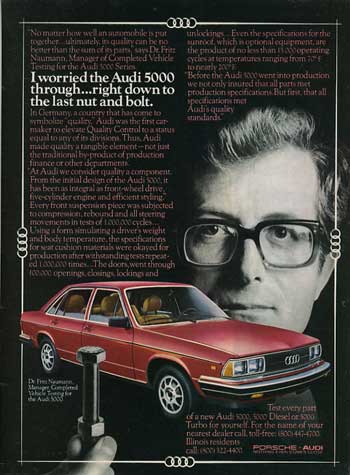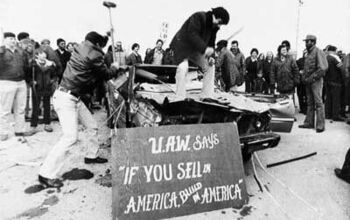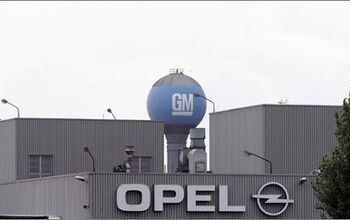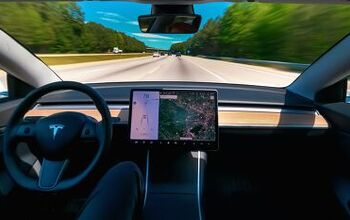Quote Of The Day: Been There, Done That, Edition
Based on my experience in the 1980s helping investigate unintended acceleration in the Audi 5000, I suspect that smart pedals cannot solve the problem. The trouble, unbelievable as it may seem, is that sudden acceleration is very often caused by drivers who press the gas pedal when they intend to press the brake.
Say what? UCLA professor emeritus of psychology Richard A. Schmidt seems to believe that something other than demonic possession is causing Toyotas to accelerate out of control. Research into the Audi 5000 debacle showed him that even experienced drivers can in fact screw up, and that absent any provable mechanical or electronic failure, the chances are good that most UA events are caused by driver error. And in one of the best op-eds yet penned on the Toyota unintended acceleration scandal [at the NY Times], he explains how anyone could accidentally drive a car of any make out of control.
After explaining that inspections of the runaway Audis found no signs of system failure, Schmidt says experts began to consider the possibilities of human error. Although not because the theory was any more popular than it is today.
In the cases that went to court, jurors naturally asked, why would a driver with decades of driving experience suddenly mistake the accelerator for the brake? And why would the episode last so long — often 6 to 10 seconds or more? Wouldn’t that be ample time to shut off the ignition, shift to neutral or engage the parking brake?
Schmidt’s answer:
First, in these situations, the driver does not really confuse the accelerator and the brake. Rather, the limbs do not do exactly what the brain tells them to. Noisy neuromuscular processes intervene to make the action slightly different from the one intended. The driver intends to press the brake, but once in a while these neuromuscular processes cause the foot to deviate from the intended trajectory — just as a basketball player who makes 90 percent of his free throws sometimes misses the hoop. This effect would be enhanced by the driver being slightly misaligned in the seat when he first gets in the car.
The answer to the second question is that, when a car accelerates unexpectedly, the driver often panics, and just presses the brake harder and harder. Drivers typically do not shut off the ignition, shift to neutral or apply the parking brake.
Just because it’s mundane, doesn’t mean it’s not the truth. As proof, Schmidt cites the introduction of automatic shift lock, which did not “entirely do away with sudden acceleration incidents.” The conclusion?
The fix now championed by the Obama administration could work in situations in which there is an actual vehicle defect. It would tell the car that if it receives signals to both accelerate and brake, the accelerator should go dead so that the brake alone will work.
But this smart-pedal system can be of no use if the driver is simply pressing the accelerator and not touching the brake. The unintended acceleration — and the crash — would still occur.
What the smart pedal may do, however, is finally give us a sense of whether sudden acceleration tends to stem from operator error. If the reports of acceleration continue (and the smart pedals work properly), then there will be nothing and no one left to blame but the driver.
If only. The self-preservation instinct that helps keep us safe behind the wheel, has a nasty habit of deluding us into thinking we’re somehow not to blame for our screwups. As long as that’s the case, complaints of cars not doing what they’re told will continue to pop up.
More by Edward Niedermeyer
Latest Car Reviews
Read moreLatest Product Reviews
Read moreRecent Comments
- Kwik_Shift_Pro4X I wonder if Fiat would pull off old world Italian charm full of well intentioned stereotypes.
- Chelsea I actually used to work for this guy
- SaulTigh Saw my first Cybertruck last weekend. Looked like a kit car...not an even panel to be seen.
- GregLocock Bear in mind this is purely a branding exercise and has no significant input from AM. Buying one of these is like buying a Pink Floyd T shirt, no Dave and Nick didn't personally sew it up for you.
- Lou_BC This is the sort of thing that lands 15 billion dollar Honda investments in Canada. One political party tries to undo everything the other one has done.


































Comments
Join the conversation
McElroy on Autoline claims that Audi was making big conquests among Buick drivers before the unintended acceleration. He also said that the Buick pedal design was spaced farther apart because there was no need to make room for the clutch pedal, as Audis still had manuals on their sedans for Europe back then. This combo of circumstances seems a plausible explanation for the unintended acceleration to me.
"the introduction of automatic shift lock" I'd forgotten the genesis of that thing...God I hate it.